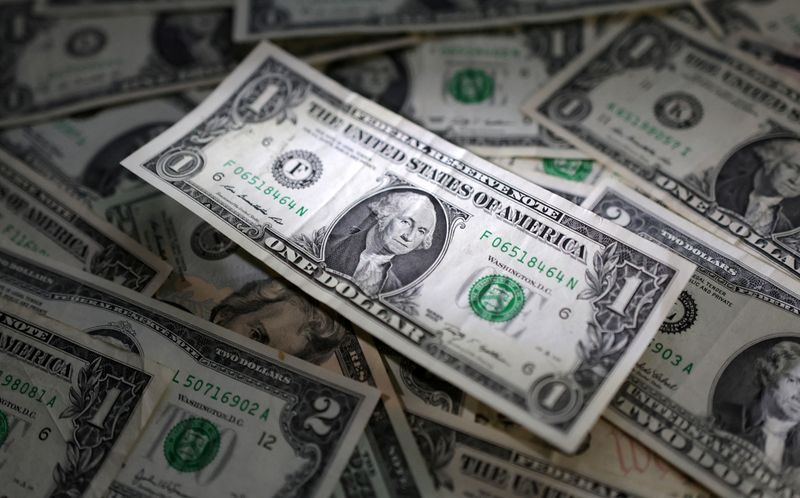By Jamie McGeever
(Reuters) - A look at the day ahead in Asian markets.
The global market spotlight on Monday looks set to zoom in on the dollar, especially its performance against emerging market currencies, after U.S. President-elect Donald Trump's weekend warning against the so-called 'BRICS' nations.
In a social media post on Saturday, Trump demanded that the 'BRICS' countries - Brazil, Russia, India, China and South Africa - commit to not creating a new currency or supporting another currency that would replace the U.S. dollar, or face 100% tariffs.
This comes after Trump had already injected additional volatility into world currency markets last week by proposing big tariffs against China, Mexico, and Canada - countries the US has some of its largest trade deficits with.
The dollar's path on Monday will be fascinating to observe. It snapped an eight-week winning streak last week with its steepest weekly fall since mid-August, as U.S. rate cut expectations cooled and Treasury yields fell.
But much of the dollar's downward momentum last week was down to its weakness against the euro and yen. It has been much firmer against other G10 currencies - not least the Canadian dollar - and especially emerging and Asian currencies.
Sentiment toward emerging markets as the final month of the year begins is still mostly downbeat. Outflows from EM bond funds remain heavy, and according to analysts at Barclays (LON:BARC) EM hard-currency bond funds last week registered their second-largest outflow so far this year.
But there are more encouraging signs from China that the raft of stimulus and support measures from Beijing in recent months may be beginning to bear fruit.
A private survey on Sunday showed that new home prices in China rose at a year-on-year rate of 2.40% in November versus 2.08% in October. And on Saturday, China's official purchasing managers index data showed that factory activity expanded modestly for a second straight month in November, and at its fastest pace in seven months.
Is there light at the end of the tunnel for China's domestic economy? With Trump ramping up the trade threats ahead of his inauguration next month, policymakers in Beijing and China bulls will certainly be hoping so.
Asia's economic calendar on Monday sees the release of a raft of manufacturing PMI reports, including China's 'unofficial' Caixin manufacturing PMI data for November. Will that reinforce the modestly encouraging signals from the 'official' figures over the weekend?
Economists polled by Reuters expect a reading of 50.5, up from 50.3 in October, which would mark the fastest pace of expansion since June.
Other regional highlights on Monday include the latest Australian retail sales data and inflation figures from Indonesia. According to a Reuters poll, consumer prices rose at an annual rate of 1.50% in November, cooling from 1.71% the previous month. That would be the lowest rate of annual inflation since June 2021.
Here are key developments that could provide more direction to markets on Monday:
- China Caixin manufacturing PMI (November)

- Australia retail sales (November)
- Indonesia inflation (November)
